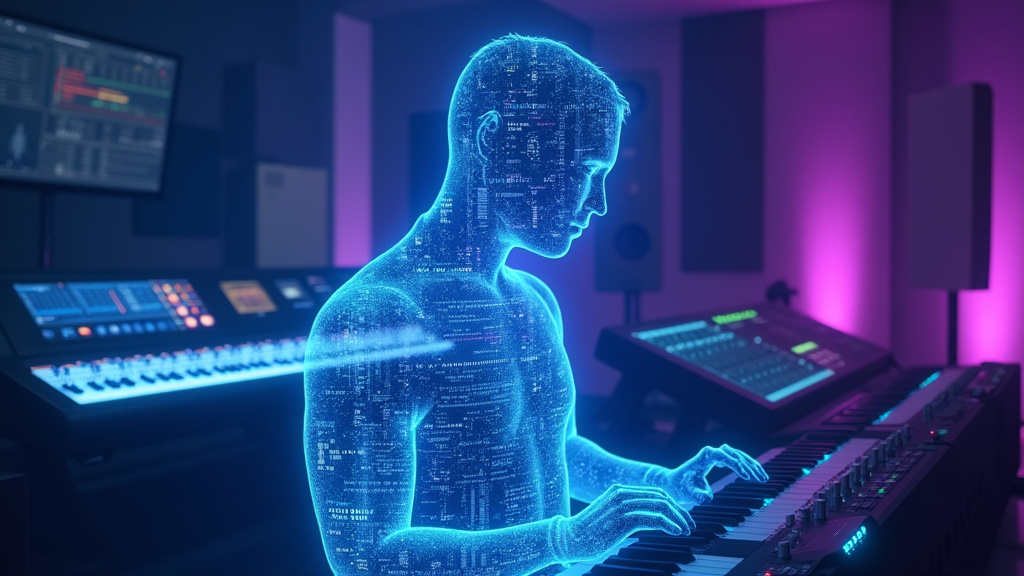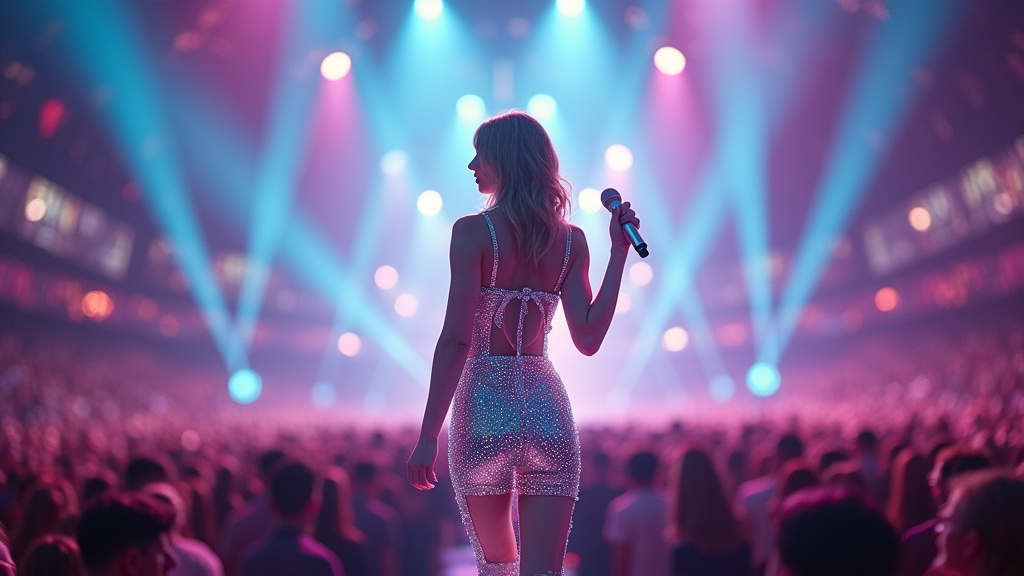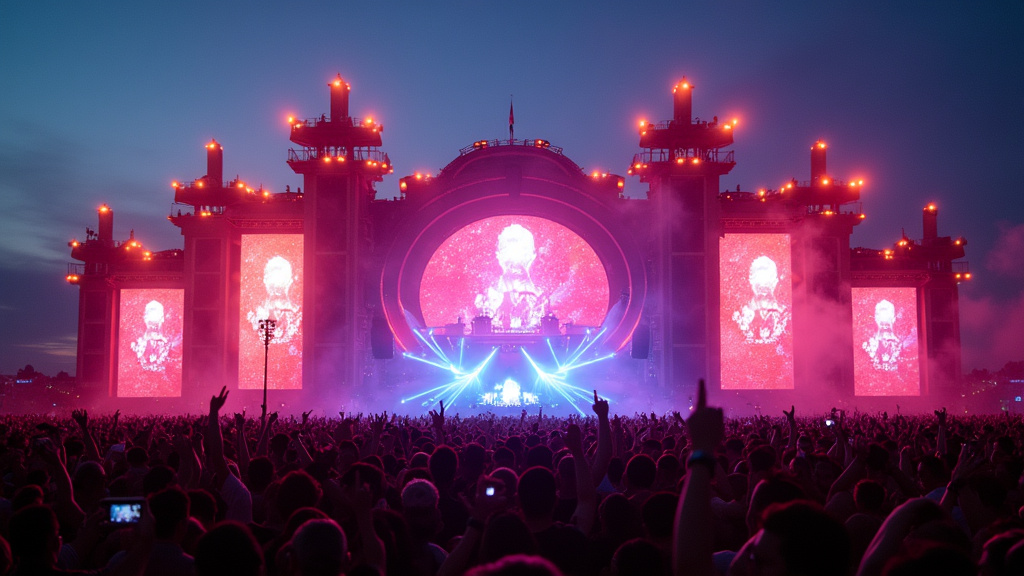The AI Music Industry is undergoing a seismic transformation, characterized by novel licensing agreements and fervent debates within the AI Music Industry. Artificial intelligence is revolutionizing music creation and the wider commercial landscape. This profound shift within the AI Music Industry demands a thorough understanding of its evolving dynamics, with new developments emerging daily that impact every artist, creator, and stakeholder in the AI Music Industry. The accelerated progress of AI technology is fundamentally reshaping how music is produced, distributed, and experienced, presenting both opportunities and significant challenges for the entire AI Music Industry.
AI in Music Creation: Exploring the New Frontier of the AI Music Industry
AI tools are now capable of generating complete songs from simple text prompts, a monumental leap in AI music creation. While this development democratizes the creative process, it simultaneously ignars substantial concerns regarding originality and copyright infringement AI. Several AI-generated tracks have been noted for their striking resemblance to existing artists, fueling fears of impersonation and unauthorized use. The track “I Run” faced such scrutiny and was subsequently removed from streaming platforms for allegedly employing an AI voice clone that closely emulated Jorja Smith. This incident highlights a critical challenge for the AI Music Industry: the imperative to protect artist identity and originality in an era where music creation is no longer exclusively a human endeavor. Questions surrounding authorship and authenticity are at the forefront of these vital discussions within the AI Music Industry.
Record Labels Forge AI Licensing Deals and Navigate the AI Music Industry Landscape
Major record labels, including Universal Music Group, Sony Music, and Warner Music Group, are now actively forging new paths after initially pursuing legal action against AI startups like Udio and Suno for alleged copyright infringement AI stemming from model training on existing music. Warner Music has reached settlements with Udio and established a partnership with Stability AI, while Universal Music has also settled with Udio. These evolving AI licensing deals aim to resolve ongoing legal disputes and establish a foundational framework for licensed AI music generation. This strategic pivot from litigation to licensing represents significant music industry news, signaling a growing acknowledgment of AI’s potential when integrated responsibly. These agreements often stipulate licensing fees and may even include equity stakes, marking a substantial evolution in the business strategy of the AI Music Industry. Such developments are crucial for the sustainable growth of the AI Music Industry.
Streaming Platforms Enact New AI Policies to Govern the AI Music Industry
Leading streaming platforms are responding proactively with updated policies to address the complexities introduced by AI. Spotify, for example, has implemented new rules specifically targeting impersonation and the unauthorized deployment of AI voice clones, with deepfakes also subject to removal. The platform is also actively combating spam uploads and “content mismatches,” such as songs erroneously attributed to incorrect artist profiles. New streaming platform policies mandate AI disclosure using the DDEX standard, requiring labels to specify the role of AI in vocals and instrumentation to enhance listener transparency. YouTube and other platforms are similarly reviewing their policies to curb misuse and safeguard authentic artists, with this news impacting all music uploads across the entire ecosystem of the AI Music Industry. Understanding these policies is paramount for anyone operating within the AI Music Industry.
Global Music Market Sees Continued Growth Amidst AI Challenges in the AI Music Industry
Despite the intricate challenges presented by AI, the global music market continues its upward trajectory within the AI Music Industry. The IFPI’s Global Music Report 2025 indicates that revenue reached $29.6 billion in 2024, a notable 4.8% increase, predominantly fueled by streaming growth. However, the observed deceleration in the growth rate warrants attention. Music industry news from Warner Music Group highlights robust performance, with revenue increases partially attributed to strong merchandise sales, particularly from the Oasis reunion. This underscores the critical importance of diversifying revenue streams beyond music consumption alone for the AI Music Industry. Wasserman Music’s expansion into the UK further emphasizes a strategic focus on comprehensive artist services, encompassing digital media and intellectual property, reflecting broader business expansion efforts within the AI Music Industry. Navigating these market shifts is key for success in the AI Music Industry.
Artist Rights and Creator Economy Debates Intensify within the AI Music Industry
Artists are increasingly vocal about their concerns regarding AI’s potential to devalue their creative output and displace human talent, thereby diluting vital royalty streams. The Artist Rights Alliance (ARA) is at the forefront of this advocacy, with over 200 prominent artists signing a letter demanding robust protections and accountability from AI developers to prevent a detrimental “race to the bottom.” The central emphasis is on ensuring fair compensation and fostering direct fan engagement, which are crucial elements for navigating the creator economy AI. Building influence that extends beyond streaming numbers remains paramount, and this model is essential for artists aspiring to build sustainable careers within the evolving AI Music Industry. The discourse around artist rights AI is central to the future of the AI Music Industry.
Navigating the AI-Driven Future of the AI Music Industry
The integration of AI into the music landscape presents a complex interplay of opportunity and risk for the AI Music Industry. Major labels are adapting by forging new AI licensing deals, while streaming platforms are establishing critical policies to govern its use. Artists are actively advocating for their fundamental rights. This dynamic evolution, consistently reflected in breaking music industry news, underscores the urgent need for responsible AI development that deeply respects human artistry and the creator economy AI. The future of the AI Music Industry will likely be shaped by collaboration, balancing innovation with the fundamental necessity of protecting artist rights AI. This ongoing transformation continues to shape the business landscape and the creative journey of artists, with new developments emerging on a regular basis within the dynamic AI Music Industry.





